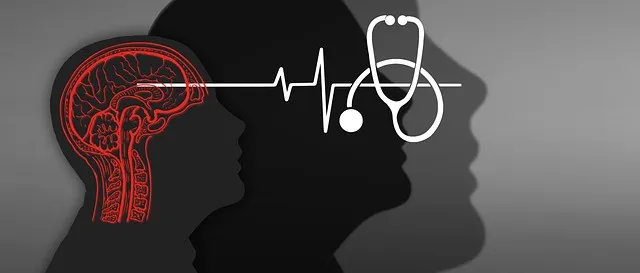Kaiser Permanente Mental Health Lakewood offers transformative programs combining social skills training, stress management, and emotional healing for individuals with mental health conditions. Through tailored techniques like active listening, assertiveness, confidence-building, and mindfulness, patients gain practical tools to navigate social interactions, improve communication, build relationships, and reduce anxiety, ultimately enhancing their quality of life.
Social skills training is a powerful tool for individuals managing mental health conditions, offering a path to enhanced well-being. This comprehensive guide explores how programs like those provided by Kaiser Permanente Mental Health Lakewood empower patients to navigate social interactions with confidence. We delve into key areas of focus, practical strategies, and techniques that can be applied daily. By understanding the impact of mental health on social relationships, you’ll discover how these training sessions foster personal growth and improve overall quality of life.
- Understanding the Impact of Mental Health on Social Interactions
- The Role of Kaiser Permanente Mental Health Lakewood in Skill Development
- Key Areas to Focus On During Social Skills Training
- Practical Strategies and Techniques for Daily Application
Understanding the Impact of Mental Health on Social Interactions

Mental health conditions can significantly shape an individual’s social interactions, often leading to challenges in various aspects of life. Conditions such as depression, anxiety disorders, and bipolar disorder can affect a person’s ability to connect with others, communicate effectively, and engage in meaningful relationships. At Kaiser Permanente mental health Lakewood, we recognize the intricate relationship between mental well-being and social skills.
Social skills training becomes an essential tool in navigating these complexities. By understanding the impact of mental health on social behaviors, individuals can learn coping strategies to enhance their interactions. This process facilitates emotional healing and prevents burnout, especially when combined with effective stress management techniques. Through tailored programs, we aim to empower individuals to overcome barriers, fostering a sense of belonging and improving overall quality of life.
The Role of Kaiser Permanente Mental Health Lakewood in Skill Development

Kaiser Permanente Mental Health Lakewood plays a pivotal role in empowering individuals with mental health conditions to enhance their social skills and navigate daily interactions with confidence. Through specialized programs, they offer a supportive environment where patients can learn practical strategies for improving communication, building relationships, and managing social situations effectively.
The team at Kaiser Permanente Lakewood focuses on teaching Conflict Resolution Techniques, crucial for de-escalating tensions and fostering positive connections. They also emphasize Mental Health Awareness, helping individuals recognize their own emotional states and those of others, thereby promoting empathy and understanding. Furthermore, the facility facilitates Coping Skills Development, equipping patients with tools to handle stress, anxiety, or challenging behaviors that may impede social engagement.
Key Areas to Focus On During Social Skills Training

During social skills training for mental health conditions, there are several key areas that require focus to ensure optimal results. At Kaiser Permanente mental health Lakewood, we prioritize teaching communication strategies that equip individuals with tools to express their needs and understand others’ perspectives effectively. This includes practicing active listening, non-verbal cues, and assertiveness techniques tailored to each person’s unique situation.
Beyond communication, building confidence is a cornerstone of our approach. Through confidence boosting exercises and role-playing scenarios, we help individuals challenge negative self-talk and develop a more positive self-image. Additionally, incorporating compassion cultivation practices into the training fosters empathy and understanding, enabling participants to navigate social interactions with greater ease and kindness towards themselves and others.
Practical Strategies and Techniques for Daily Application

Social skills training plays a pivotal role in managing mental health conditions, offering practical strategies for everyday application. At Kaiser Permanente mental health Lakewood, therapists often emphasize coping skills development through role-playing and mindfulness exercises, empowering individuals to navigate social interactions with confidence. These sessions help clients practice emotional regulation techniques, fostering better communication and understanding in their daily lives.
The emotional healing processes incorporated into these training programs encourage participants to identify and express their emotions effectively. By learning to manage stress and anxiety in social settings, individuals can build resilience and improve their overall mental well-being. This tailored approach ensures that the skills acquired are readily applicable, enabling clients to navigate social challenges with newfound coping mechanisms.
Social skills training is a valuable tool for individuals with mental health conditions, offering a path to enhance their interactions and overall well-being. As highlighted by the expertise of Kaiser Permanente Mental Health Lakewood, this training focuses on key areas such as communication, empathy, and conflict resolution, empowering individuals to navigate social situations more confidently. By incorporating practical strategies learned during training into daily life, those affected by mental health conditions can foster healthier relationships and improve their overall quality of life.






